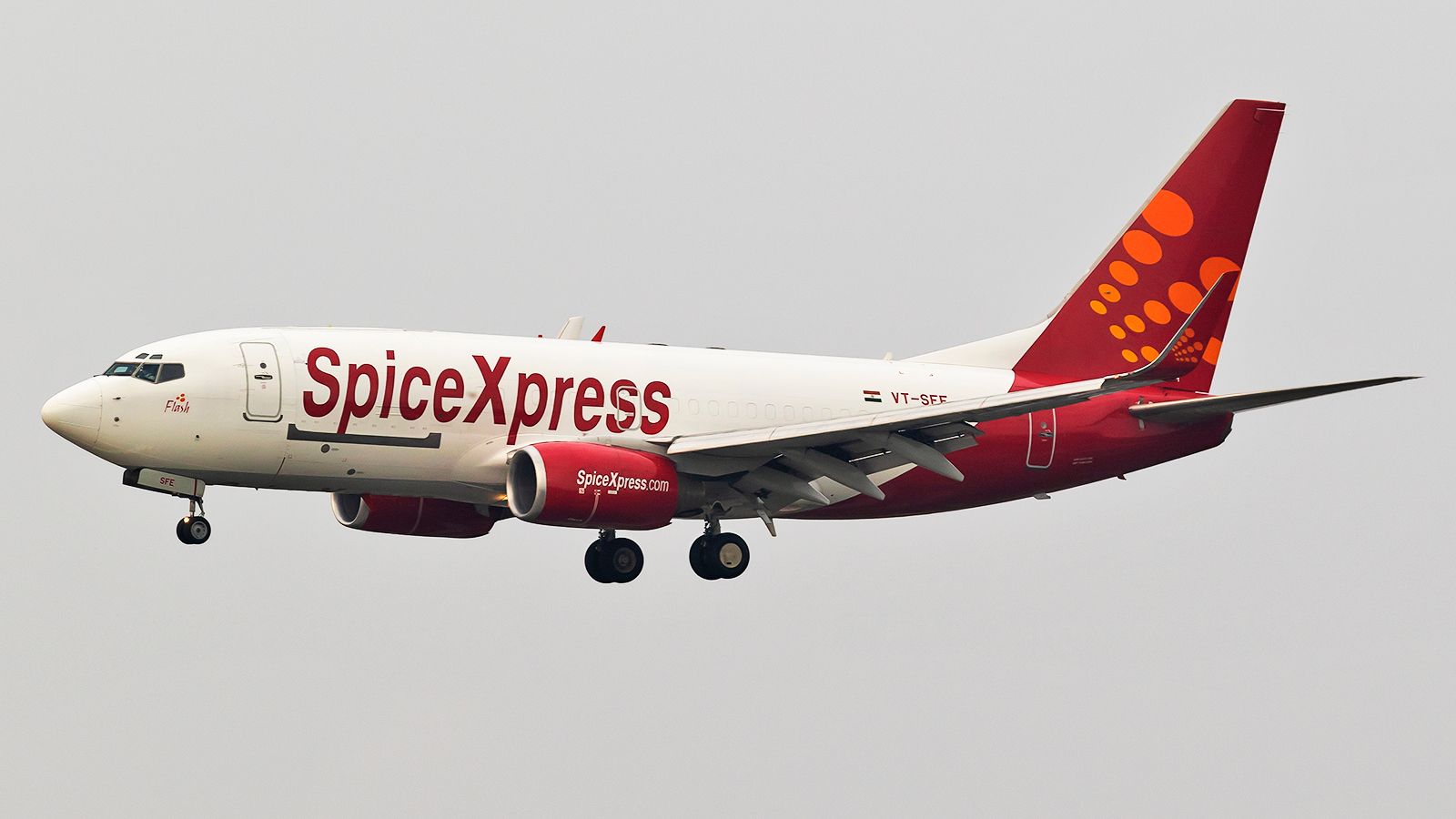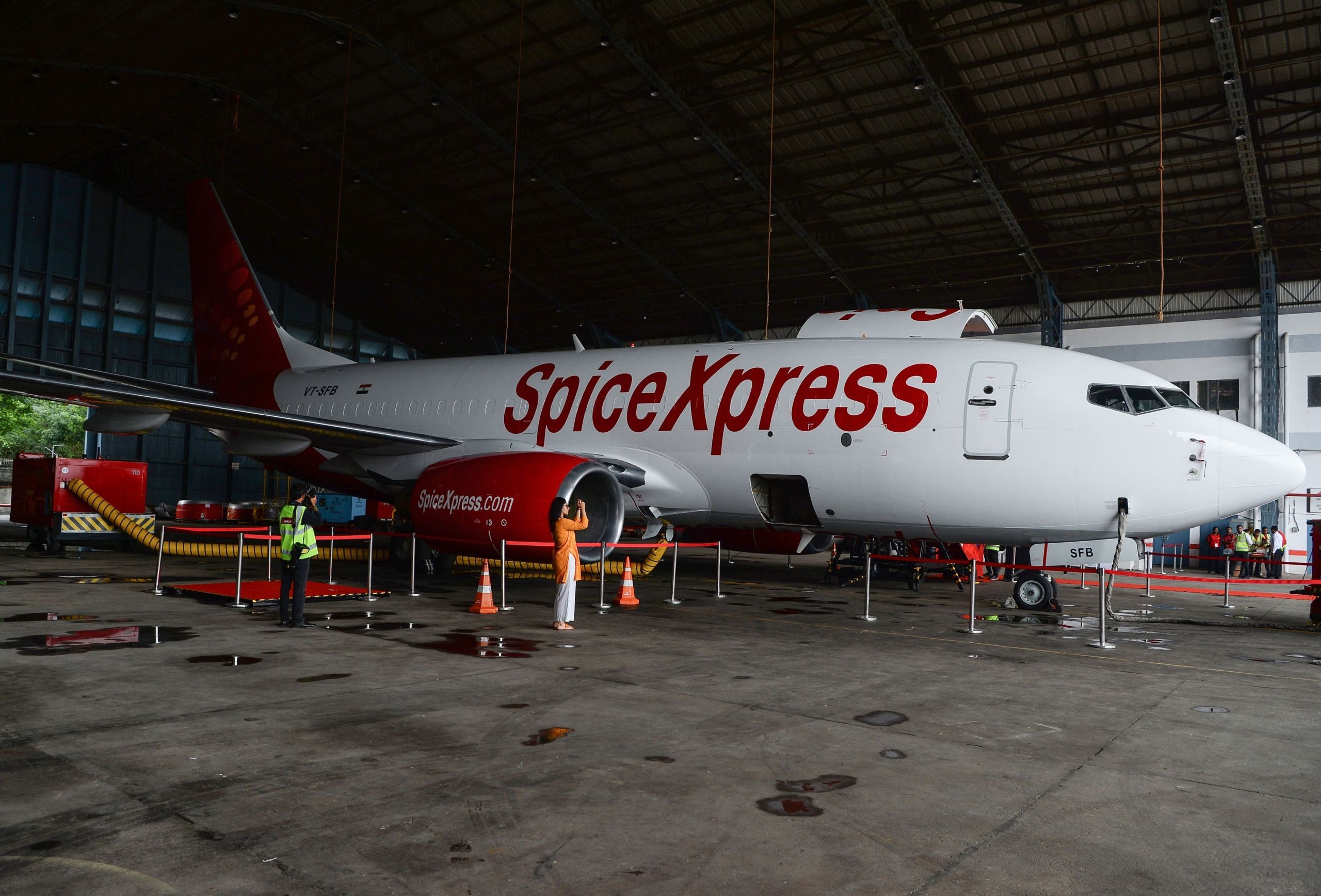Indian budget carrier SpiceJet is finally going ahead with the bifurcation of its passenger and cargo business by making SpiceXpress a separate cargo airline. SpiceJet is currently a loss-making carrier, in sharp contrast to the profitable SpiceXpress. The new entity will still be owned by SpiceJet but will work as a separate company.
Approval received
SpiceJet has received all the necessary approval from banks and shareholders to hive off cargo and logistics company SpiceXpress. If everything goes smoothly, the separation will be complete by August first week.
Talks about hiving off SpiceXpress have been going on since last year. In August 2021, we reported that SpiceJet had approached the government for a No-Objection Certification (NOC) for a new carrier, SpiceXpress and Logistics.
SpiceJet will transfer its cargo and logistics services on a slump sale basis to SpiceXpress, and the freight airline will see aircraft, trademarks, contracts, and all the rest transferred from the parent carrier. This will allow it to manage its affairs independently and expand further.
SpiceJet’s Managing Director Ajay Singh told the Press Trust of India (PTI),
“SpiceXpress will also be able to raise capital independent of SpiceJet to fund this growth. We are confident that the performance of SpiceXpress as an independent entity will leverage and unlock significant value for SpiceJet and all its shareholders”
SpiceXpress currently operates a fleet of five aircraft – two Boeing 737-800Fs and three 737-700Fs – all converted freighters more than 20 years old.
Profitable enterprise
Unlike SpiceJet, SpiceXpress is a profitable enterprise with an ever-increasing revenue. According to PTI, its profit from October to December 2021 increased 17% on a quarter-on-quarter basis to approximately $73 million. SpiceXpress’ network is spread across more than 60 destinations in India and several others abroad.
Simple Flying will be at the Farnborough Airshow next week. For all the latest news from the show, click here!
SpiceJet, on the other hand, has been drowning in losses for the last few years. For the financial years 2018-19, 2019-20, and 2020-21, the airline reported losses of approximately $39.6 million, $1.1 billion, and $1.25 billion.
Recently, it was also issued a show-cause notice by India’s aviation regulator, the Directorate General of Civil Aviation (DGCA), after reports of several of its aircraft involved in incidents.
Shifting trends
India seems to want to ride the cargo wave that has gained momentum during the COVID pandemic. Not too long ago, the country primarily had one dedicated cargo airline, Blue Dart, which operates a fleet of six converted Boeing 757 freighters.
However, the pandemic has shifted the airlines’ perception of cargo, having witnessed its potential to bring in substantial revenue during COVID. IndiGo is about to receive its first dedicated cargo aircraft soon, and another dedicated freighter airline, Pradhaan Air, will enter the market later this year.
It remains to be seen how much of India’s cargo market can home-grown carriers capture in the years to come.
What are your views on this? Please share in the comment section below.


.jpg)

.jpg)